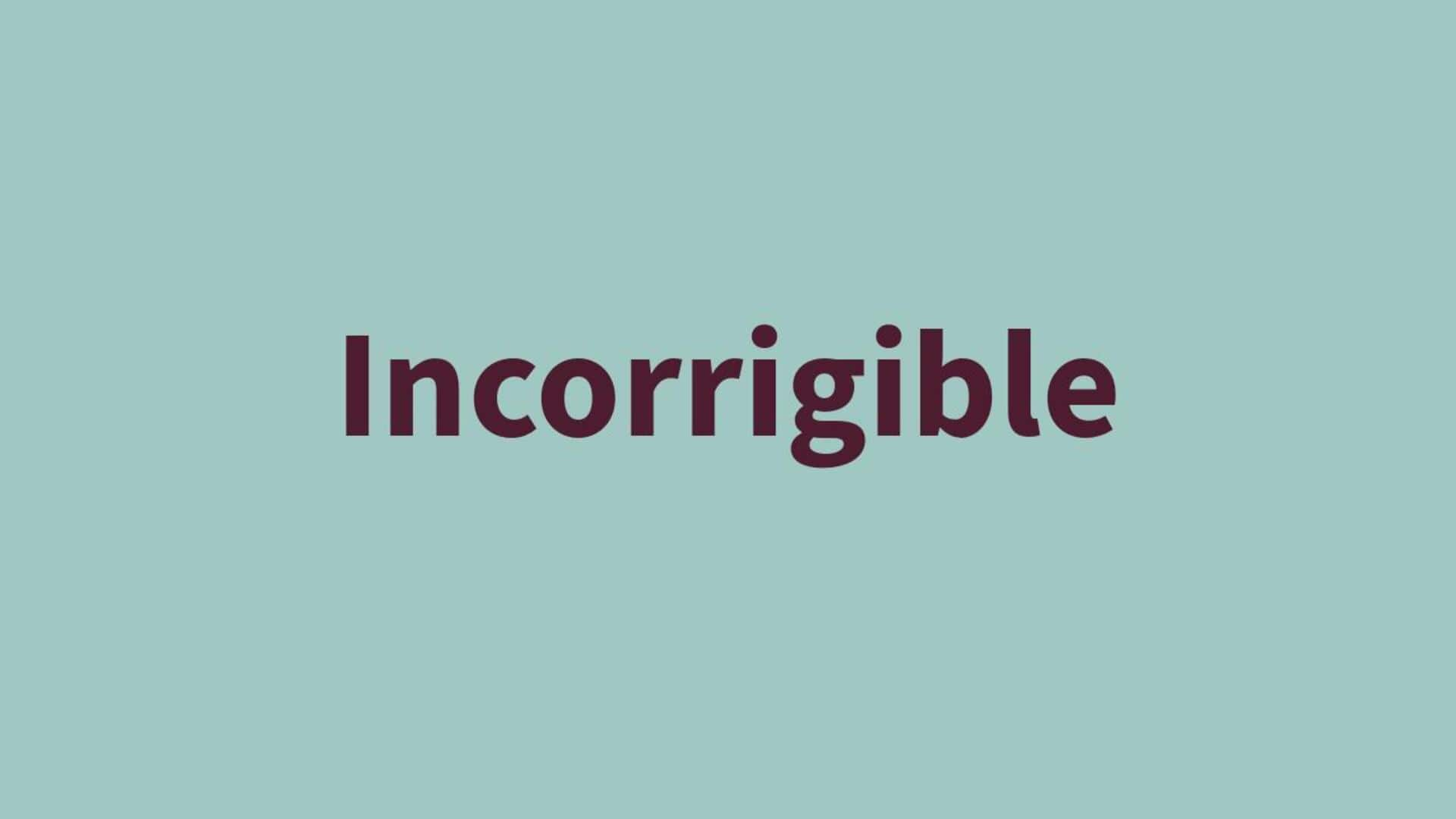
Word of the Day: Incorrigible
What's the story
The word "incorrigible," an adjective, describes a person or behavior that is beyond reform or correction.
It often refers to individuals who consistently exhibit negative or mischievous traits despite attempts to change them.
For example, an "incorrigible"prankster is someone who keeps playing jokes, no matter how often they are told to stop.
Origin
The origin and meaning of 'incorrigible'
"Incorrigible" originates from the Latin word incorrigibilis, combining in- (not) and corrigere (to correct).
It entered the English language in the 14th century, initially describing something or someone incapable of being reformed or rectified.
Over time, it evolved to emphasize irredeemable behaviors, often with a tone of humor or exasperation.
Synonyms
Synonyms for 'incorrigible'
Synonyms for "incorrigible" include hopeless, unchangeable, habitual, unmanageable, and stubborn.
These words highlight someone's refusal to change.
For example, an "incorrigible" optimist could also be called endlessly positive, showing their cheerful attitude even during tough times.
The word is useful for describing lasting traits, whether frustrating or lovable.
Usage
Sentence usage
Here are examples of how "incorrigible" can be used in sentences:
"Despite repeated warnings, he remains 'incorrigible,' always finding a way to bend the rules."
"Her 'incorrigible' sense of humor made every meeting brighter, even if it wasn't always appropriate."
"The comedian's 'incorrigible' wit made every show unpredictable and entertaining."
Tendencies
Why use incorrigible
The word "incorrigible" is ideal for describing habits or traits that are unchanging.
It applies to stubborn tendencies, bold personalities, or even charming peculiarities.
Its versatility adds depth to descriptions, allowing for humor or seriousness depending on the context, making it a valuable addition to everyday language.